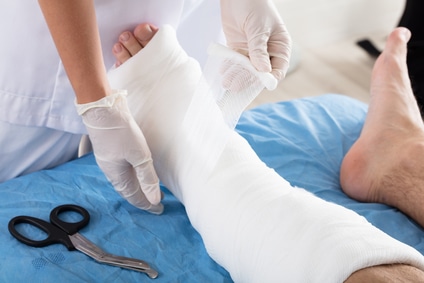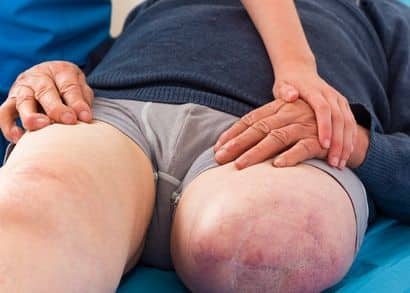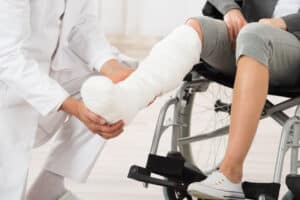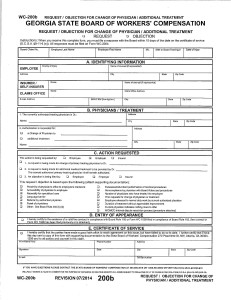Working in a lumbar mill or sawmill is extremely dangerous work. In fact, OSHA has stated that working in a sawmill is one of the most dangerous occupations in the U.S. The sawmill workplace has many different dangers:
- Extremely heavy objects like weights and logs which can cause crush injuries
- Dangerous machines which may not have proper safeguards
- Chemicals and wood dust which can cause respiratory and/or skin irritation and diseases
If you work in a lumber mill or sawmill and suffer a work-related injury, you need to make sure you understand how the workers compensation laws work. Each state has different workers compensation rules.
Although they are similar in many ways, the particular workers compensation laws of the state where your claim is filed make a big difference. This article focuses on workers compensation in the state of Georgia.
 Are sawmill injuries at work covered by workers compensation in Georgia?
Are sawmill injuries at work covered by workers compensation in Georgia?
Yes. Sawmill injuries generally are covered under Georgia’s workers compensation laws. The basic rules for cover of an injury is that it is ‘work-related”.
There are specific legal terms that define what “work-related” means. In Georgia, it means that you suffer an accident that both arises out of and in the course of your employment. An easy way to think of this is that it happens during the time you are doing your job and also while you are doing something job connected.
Sometimes, you can suffer an injury at work that is not covered by workers compensation. This usually happens in some of the following situations:
- You are engaged in willful misconduct at the time of your injury (such as horseplay or intoxication)
- You willfully fail to follow a safety rule when operating a machine
If your injury happens at work and the insurance company denies your workers compensation claim, you should not just accept that answer. You definitely need to look into whether you can overcome their denial and receive benefits.
The defenses mentioned above can be very difficult for insurance companies to prove. With the help of a workers compensation attorney, you can often overcome these defenses and receive workers compensation benefits or a settlement.
What benefits do I receive if I suffer a work injury at a sawmill or lumber mill?
Under Georgia’s workers compensation law, three basic types of benefits are available:
- Wage loss benefits for missing work as a result of your injury known as temporary total disability or temporary partial disability
- Medical benefits where the insurance company pays for the treatment and testing you need for your injury with certain authorized doctors
- Permanent partial disability benefits which pay for permanent impairment you have as a result of an injury
Each one of these benefits has its own special rules that apply to it. The wage loss benefits have rules that determine how much you receive each week you are out of work and how long you can receive them. The medical benefits have a number of different rules that determine what doctor you can see for treatment and testing. Your permanent partial disability rating is determined using a six hundred plus page book that is published by the American Medical Association.
One problem is that insurance companies often do not follow all the different rules that apply. When they do not follow the rules, you do not receive the benefits you should. You need to understand the rules to make sure you receive the benefits you should.
What happens if I return to a light duty job after my workers compensation injury?
It depends. Some people are able to return to light duty jobs after serious work-related injuries. In a Georgia workers compensation case, you do need to know that there are specialized rules that apply to light duty job offers. Read this article to find out more about the process that should be followed to offer you a light duty job.
If I suffer an amputation to my arm or leg, are there special rules that apply?
Yes, there are special rules that apply to amputation injuries. Unfortunately, many amputation injuries occur in sawmills as a result of the sharp blades and other dangerous machines. These injuries can lead to you losing part of your hand, foot, arm, or leg as a result of an amputation or crush injury.
One special rule that applies is the potential to qualify for a catastrophic designation. Catastrophic designation of your injury provides special benefits.
One benefit is the removal of some time limits that apply to receipt of workers compensation benefits. A second benefit is the appointment of a catastrophic rehabilitation supplier on your claim. This article provides a more complete explanation of catastrophic designation.
 Amputation can qualify for catastrophic designation in a couple of different ways. One way that they qualify is under the amputation subsection of O.C.G.A. 34-9-200.1(g)(6). This subsection provides that an injury is catastrophic if it involves an amputation of an arm, hand, foot, or leg involving the effective loss of use of that appendage.
Amputation can qualify for catastrophic designation in a couple of different ways. One way that they qualify is under the amputation subsection of O.C.G.A. 34-9-200.1(g)(6). This subsection provides that an injury is catastrophic if it involves an amputation of an arm, hand, foot, or leg involving the effective loss of use of that appendage.
Even if your case does not qualify for a catastrophic designation, another special rule that applies to amputations is an exception to the 400 week limit on medical treatment and testing. One of the exceptions to this limit is for the replacement of prosthetics that were provided within 400 weeks of the initial injury. This exception is extremely important for people who suffer amputations because prosthetics do not last forever and need to be replaced.
Can I file a separate personal injury case in addition to my workers compensation case when I suffer a sawmill injury?
That depends. Sometimes, you may suffer an injury at work that allows you to pursue a workers compensation case and a separate personal injury case. One common example where this happens is when you suffer an injury from a machine that was designed without proper safeguards.
Usually, you only get to have the workers compensation case. This is because the workers compensation case replaces your right to pursue a personal injury case against your employer.
When you end up getting the ability to pursue a separate personal injury case is when the personal injury case is against someone other than your employer. For example, if a machine was designed by some other company defectively then that may give you the opportunity to pursue a personal injury case against that other company in addition to the workers compensation case against your employer.
This article provides additional information about personal injury cases from work-related injuries.









